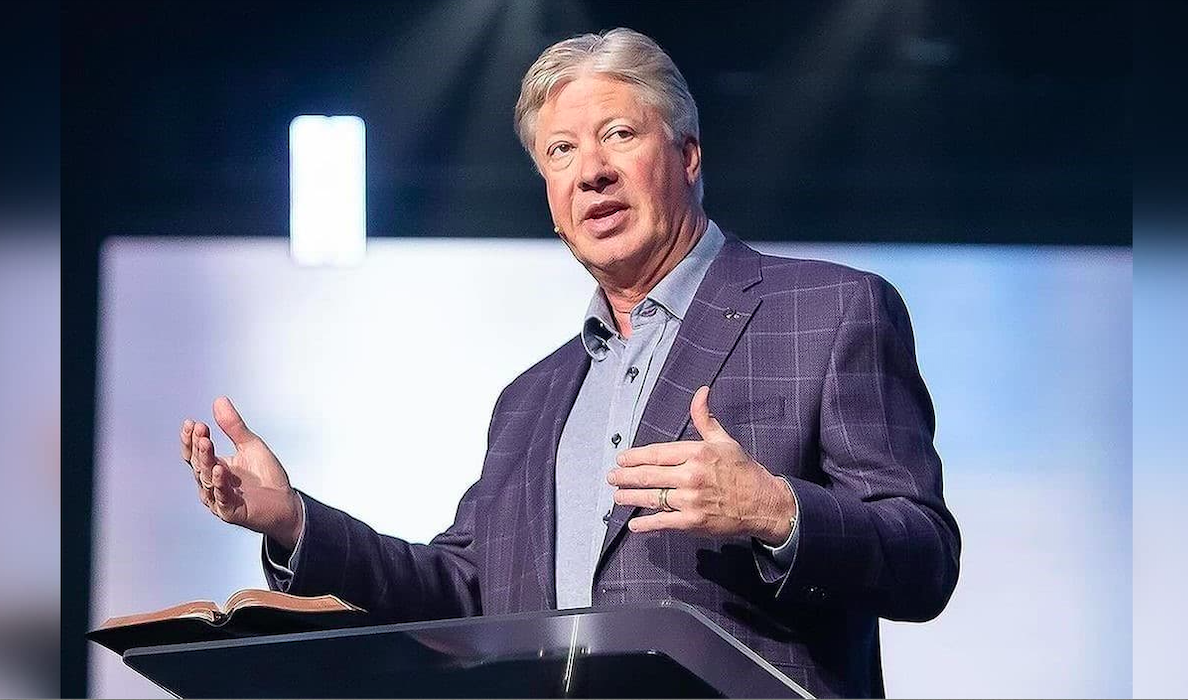Gateway Church Forced to Cut Services Amid Robert Morris Scandal
Gateway Church, one of the nation’s most influential megachurches, is drastically scaling back its operations after facing a growing backlash tied to the moral downfall of its founder, Pastor Robert Morris.
The Dallas-Fort Worth-based church, which once boasted tens of thousands in weekly attendance, confirmed that it will reduce its services across all campuses in response to what leaders called a “challenging season.”

In a video announcement, acting lead pastor Blake Healy said the church will suspend Sunday services at two campuses and shut down midweek activities at several others. The decision, according to Healy, was made out of “prayerful consideration” as the church navigates a painful chapter brought on by what many are calling the moral and spiritual collapse of its founder.
“As we continue to strengthen our relationship with the Gateway Church family and community, we’re making a shift at several of our DFW campuses by hosting our church services on Sundays only,” a church spokesperson told WFAA.
While Gateway did not initially disclose details, multiple sources and reports confirm that the fallout stems from credible allegations of misconduct involving Robert Morris. The once-revered pastor stepped down from public ministry earlier this year amid growing scrutiny, though Gateway leadership has remained tight-lipped about the specifics. Nevertheless, the impact on the church body has been profound, with many longtime members feeling betrayed and confused.
Gateway’s announcement comes just weeks after internal attendance numbers reportedly dropped by nearly 25% across all locations. Financial giving has also declined sharply, forcing the church to reevaluate its staffing, events, and expansion plans. “We believe this is a season of refining,” Healy stated, echoing sentiments that have become familiar in church leadership transitions—though rarely under such controversy.
Founded in 2000 by Morris, Gateway quickly grew into a national hub for charismatic evangelicalism, known for its contemporary worship, leadership conferences, and its emphasis on spiritual gifts. The church’s influence extended beyond Texas through its media outreach and partnerships with other churches. But now, even its once-thriving online platform is seeing a noticeable drop in engagement.
While some progressive outlets have used the scandal to launch broader attacks on megachurches and conservative evangelicalism, Gateway’s core audience has remained focused on spiritual restoration and truth. Many conservative Christians see this not as an indictment of biblical leadership, but as a reminder that even high-profile pastors are subject to the same moral accountability as any believer.
“There’s no pleasure in seeing a man fall,” said one longtime Gateway member who asked to remain anonymous. “But we also can’t ignore that sin has consequences—no matter how large the ministry is.”
Although Gateway has promised transparency going forward, critics argue that the church’s leadership has been too slow and vague in addressing the specifics of Morris’s departure. For some, this lack of clarity is fueling further distrust. “It’s not enough to say ‘a mistake was made’ when people are asking for the truth,” said a former staff member. “Healing can’t begin without honesty.”
Still, many within the church community are calling for prayer rather than condemnation. Several ministries have launched internal healing groups, and campus pastors are working overtime to care for congregants reeling from the news. At least two regional pastors have resigned since the announcement, citing the need for personal renewal and reflection.
The scandal also raises questions about the sustainability of personality-driven churches. For years, Gateway’s identity was closely tied to Morris’s charismatic leadership and national visibility. While the church has tried to pivot toward team leadership in recent years, the recent events highlight the challenges of shifting away from founder-centric ministry models.
Faith-based watchdog groups have begun weighing in, urging churches nationwide to reevaluate how they handle moral failure in leadership. “This is a moment for the American church to ask serious questions about structure, transparency, and spiritual health,” said Dr. Alan Greene of the Biblical Accountability Network. “Too often, we build empires instead of communities.”
Despite the turmoil, Gateway leaders are expressing hope that this painful pruning will result in spiritual fruit. Pastor Healy closed his recent message by referencing John 15:2, saying, “Every branch that bears fruit, He prunes, that it may bear more fruit.” Whether the church can indeed rebuild and flourish remains to be seen, but its current course is clearly one of retreat and reflection.
As more details emerge about the nature of Morris’s actions and the church’s internal handling of the matter, many believers are watching closely—some with hearts heavy, others with prayers for revival. Gateway’s future will likely hinge not only on what is said from the pulpit, but on what is demonstrated in practice: integrity, humility, and a renewed dependence on Christ rather than celebrity.
For now, the lights at some Gateway campuses will remain dim on Sundays. But for the faithful remnant choosing to stay, there’s still hope that the church, like so many believers before it, can rise again—not because of man, but because of the unchanging grace of God.

